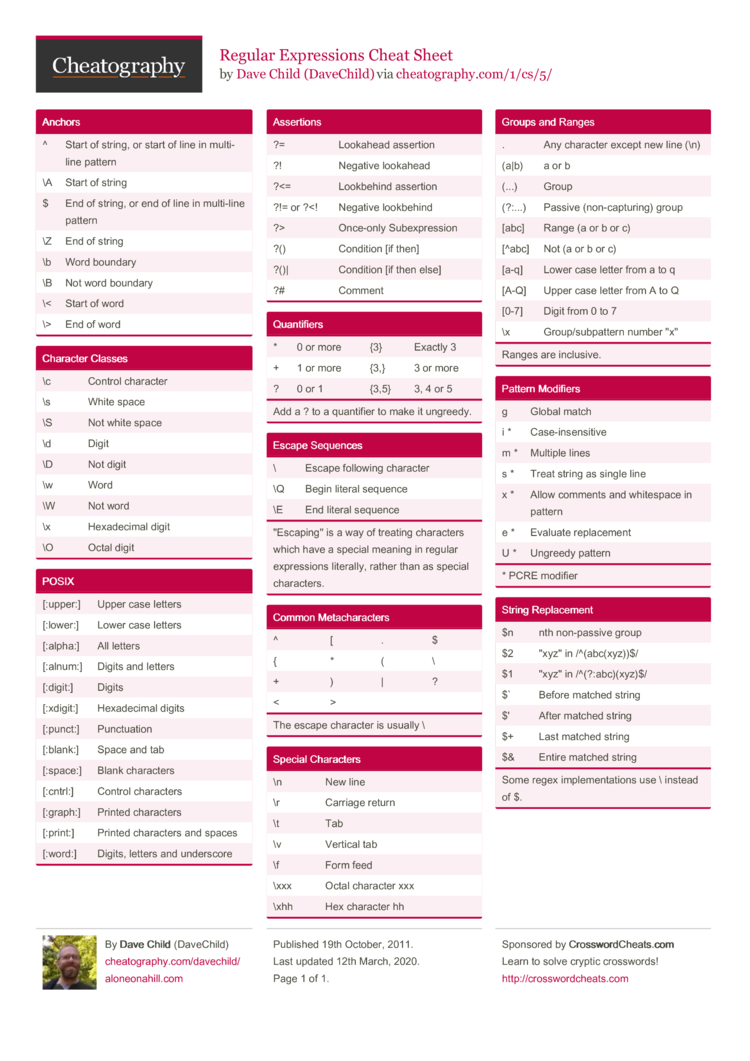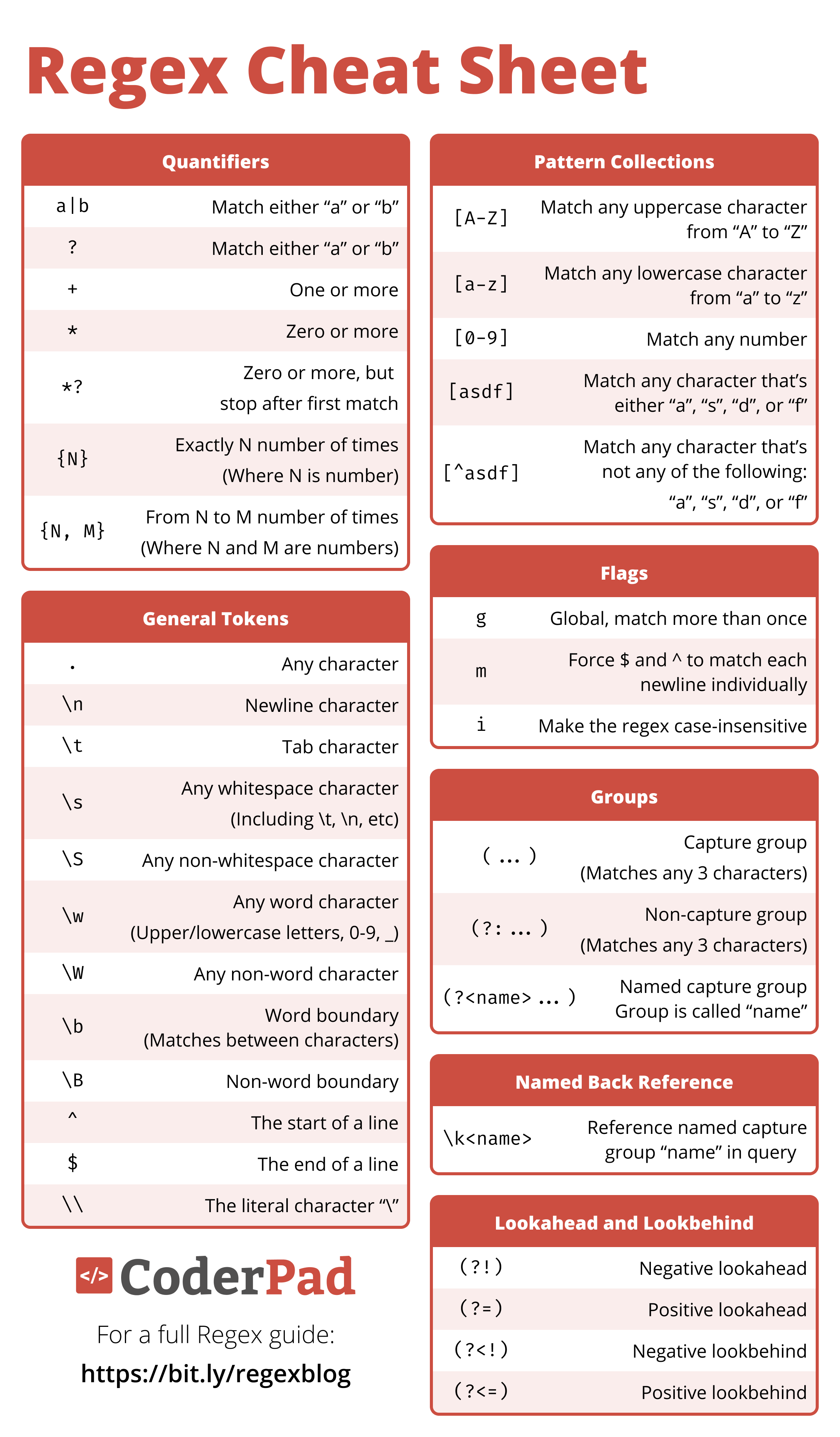R Regex Printable Characters A regular expression is a pattern that describes a set of strings Two types of regular expressions are used in R extended regular expressions the default and Perl like regular expressions used by perl TRUE There is also fixed TRUE which can be considered to use a literal regular expression
To create the regular expression we need dot And this tells R to look for an explicit str extract c abc a c bef a c 1 NA a c NA If is used as an escape character in regular expressions how do you match a literal 17 9 Summary The primary R functions for dealing with regular expressions are grep grepl Search for matches of a regular expression pattern in a character vector regexpr gregexpr Search a character vector for regular expression matches and return the indices where the match begins useful in conjunction with regmatches
R Regex Printable Characters
![]() R Regex Printable Characters
R Regex Printable Characters
https://spiriti.spritely.net/how_do_you_check_special_characters_in_regex.gif
Gregexpr regexec These functions allow you to search for matches to the argument pattern within each element of a character vector They differ in the format of and amount of detail in the results But how do we define the pattern That s where the ultimate cheatsheet for regex in R comes in
Templates are pre-designed files or files that can be used for numerous functions. They can conserve time and effort by providing a ready-made format and design for producing various kinds of material. Templates can be used for individual or professional jobs, such as resumes, invites, leaflets, newsletters, reports, presentations, and more.
R Regex Printable Characters
Regex Non Printable Characters StackBlitz

Regex For Number Less Than 100 Tampadelta

Demystifying The Regex GitHub

How Can I Check If A String Contains Only Printable Characters And

R Regex Loop That Creates Variables In A Dataframe Stack Overflow

Any Non Word Characters
https://stackoverflow.com/questions/1247762
Very late to the party but this regexp works How It matches all characters in the range from space ASCII DEC 32 to tilde ASCII DEC 126 which is the range of all printable characters If you want to strip non ASCII characters you could use something like someString replace g

https://stackoverflow.com/questions/14565934
I need certain non printable ones to get through such as r n b For instance x00 x7F allows everything through but p print stops n r b as well as the incorrect characters SO for me it is not a case of ignoring all non printable characters You might change it to 0

https://www.datacamp.com/tutorial/regex-r-regular-expressions-guide
The most common R regex patterns and their scope nuances and pitfalls When and how to use

https://stackoverflow.com/questions/27721008
101 I want to match a regular expression special character I tried x
https://www.rdocumentation.org/packages/base/versions/3.6.2/topics/regex
Control characters In ASCII these characters have octal codes 000 through 037 and 177 DEL In another character set these are the equivalent characters if any digit Digits 0 1 2 3 4 5 6 7 8 9 graph Graphical characters alnum and punct
Matches the characters between Q and E literally suppressing the meaning of special characters Q E matches YES no YES YES YES YES YES YES YES no no no no no no ECMA extended egrep awk no no no no no no no no Hexadecimal escape xFF where FF are 2 hexadecimal digits Matches the character at the specified R makes it look worse than it is with all the escaping we have to do for the parenthesis since they are special characters in regular expressions Share Improve this answer Follow edited Apr 19 2022 at 17 52 answered Jun 11 2014 at 21 56 MrFlick MrFlick 197k 17 17
Character sets represent options inside of brackets with regex matching only one of the options There are multiple things we can do with character sets Match a group of characters We can find all of the vowels in our string by putting every vowel in brackets for example aeiou